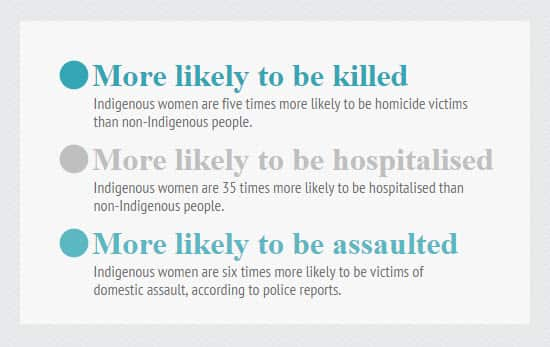- Read our full feature examining domestic violence in Australia here.
- Worst time of my life: Rosie Batty leads the charge for change on domestic violence.
- Rosie Batty: Court system 'like navigating a minefield'
- Budget cuts hurting domestic violence victims, Senator says
Lisa Bonavita was raised in a strict Italian family where violence was considered a normal part of marriage.
Speaking to SBS under a pseudonym, the Melbourne woman said her upbringing had left her ashamed to come forward when she first experienced domestic violence at 29 years old.
“My environment as a child, my father ruled the roost,” she said.
“If my mother stepped out of line, she would get things thrown at her. Slapped. For me that was normal. I had this issue I was a failure because I couldn’t handle my husband treating me that way.”
Listen: Stephanie Anderson speaks with Lisa Bonavita.
Ms Bonavita said the abuse only began after she and her former partner had moved in together.
She said the abuse not only targeted her, but in time spread to her three young children.
“He’d lock us out of the house, drag us across the floor,” she said.
“One instance, my son had no nappy on and he did a poo on the [car] seat. When we eventually got him out, my ex rubbed his face in it.
“Because I screamed in disgust, in front of my children, he beat me until I passed out.”
Ms Bonavita said she had felt trapped after falling pregnant and signing over financial control to her former partner after their wedding, but it was shame that kept her silent.
“This went on for five years, because I was too ashamed,” she said.
“In my eyes, I was a failure… In the end, to keep my children – after going through three or four years of his verbal, mental and physical abuse – I had to leave him. He almost killed me.”
‘Not all women want to end their marriage’
Pressure to maintain the family unit in the face of domestic violence is also felt in other multicultural communities, the United Muslim Women Association says.
In a submission to a Senate inquiry on domestic violence, the Sydney-based group said there were needs that were specific to Muslim women who are experiencing domestic and family violence.
“Not all women who require support… want to end their marriage,” it read.
“Many of the women who are undergoing marital conflict are desirous of resolving their marital problems and want to maintain their family unit. Islam has emphasised the importance of the family as a foundation.”
The prevalence and impact of domestic violence on women from Aboriginal and Torres Strait Islander backgrounds is another issue being investigated in the Senate inquiry, attracting submissions from organisations including Phoenix House.
Research conducted by the Queensland-based sexual violence prevention service found that social taboo, the normalisation of family violence and a lack of culturally appropriate services contributed to the problem of domestic violence in Indigenous communities.
An Australian Bureau of Statistics survey undertaken in 2008 found that one in three Indigenous women who experience physical assault had suffered the violence at the hands of a current or former partner.

A separate report issued three years later reported that 86 per cent of Aboriginal and Torres Strait Islander people had experience with domestic violence, compared to 63 per cent of non-Indigenous Australians.
Indigenous women and children are more likely to experience violence than any other section of Australian society, according to the Australian Government.
Concerns over forced and arranged marriages
The reported rate of violence against Indigenous women is higher than that against women from culturally diverse backgrounds, who are 10 per cent less likely to report violence.
Immigrant Women's Speakout Association executive officer Jane Boch told SBS that cultural dislocation meant some women were left trapped in violent households.
“There are those who have been isolated for many years, due to language and also lack of support – community support, family,” she said.
“Many times there are those who have migrated here through marriage and they do not have families. For all of those years, most of them have stayed at home looking after young children, unable to access the information they need.
“… For many of the migrant and refugee women, they think that this is something that they deal with in a private way and it only dawns on them that they have to seek help when they’re no longer healthy.”
Ms Boch said the Association, established more than 30 years ago to help refugee women escaping domestic violence, dealt with cultural complexities on a daily basis.
She said women from all backgrounds and relationship types suffered the same problems, despite their different circumstances.
“It’s across all types of women, whether they’re low income or high income,” she said.
“Many are highly trained in their profession before they migrated to Australia. We have several women who are general practitioners, medical doctors, who have sought help from our service.”
Women from arranged and forced marriages are also among the association’s clients, where staff had been working with girls as young as 15 years old.
Ms Boch said the association has dealt with girls as young as 15.
“They’re wanting us to give them advice on how to stop their parents from getting them to marry their first cousins,” she said.
“They think it’s dangerous for them, as young women… They want to have a life of a person in control of her destiny.”
Readers seeking support and information can contact:
Mensline: 1300 78 99 78
National Sexual Assault, Family & Domestic Violence Counselling Line: 1800 737 732
Lifeline: 13 11 14
Kids Help Line: 1800 551 800

